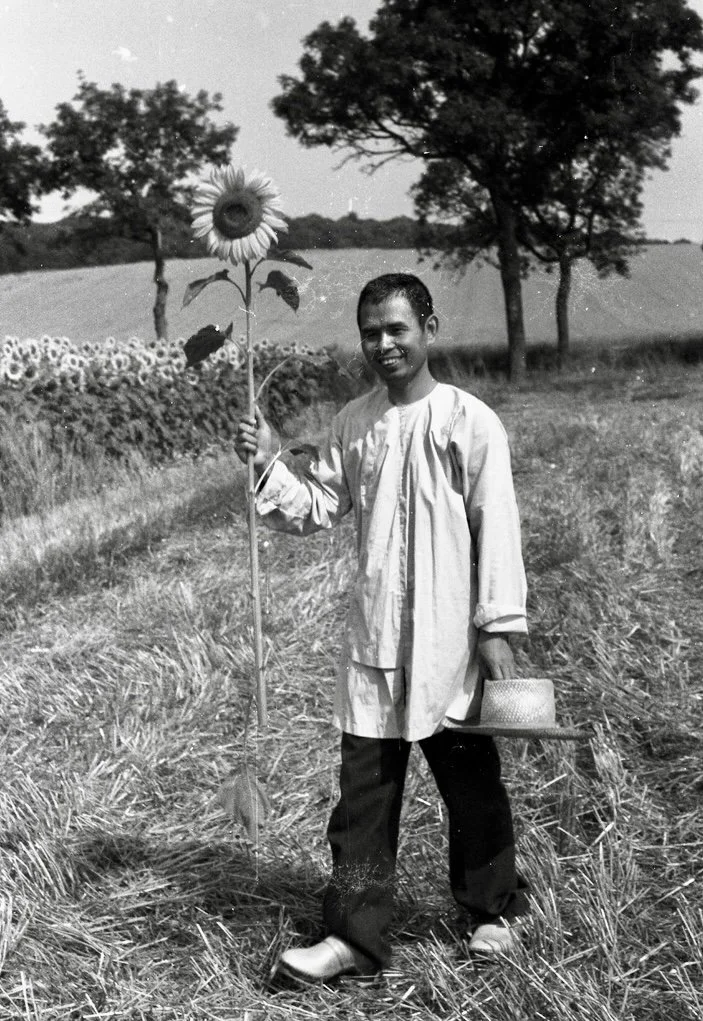
Washington Mindfulness Community
Buddhism For Our Time
In his book of commentary on the Diamond Sutra, Mu Soeng writes this: “Buddhism is not a monolithic entity. It is rather a tradition from which people who consider themselves Buddhists draw inspiration and to which they add as they respond to the problems of their lives, sometimes reformulating the doctrine in new ways to make it more relevant, sometimes returning to earlier principles when they seem to be timely or in danger of becoming lost. The tradition is thus a history of what Buddhists think and do.”
Thich Nhat Hanh, our teacher, was ordained as a monk in Vietnam, aged 16. He soon envisioned a kind of engaged Buddhism that could respond directly to the needs of society today. He was a prominent teacher and social activist in his home country before he was exiled for calling for peace in the war in Vietnam.
In the west, he played a key role in introducing mindfulness, and created mindful communities (sanghas) around the world. Through his simple yet profound teachings that bring the Buddha’s teachings to a contemporary audience, mindfulness has reached a mainstream audience in countries all over the world. He has given us modern translations of key Buddhist texts, and has applied Buddhist insights to every aspect of our society, including education, business, technology, and the environmental crisis.
Thay wrote; “I am a continuation, like the rain is a continuation of a cloud.”